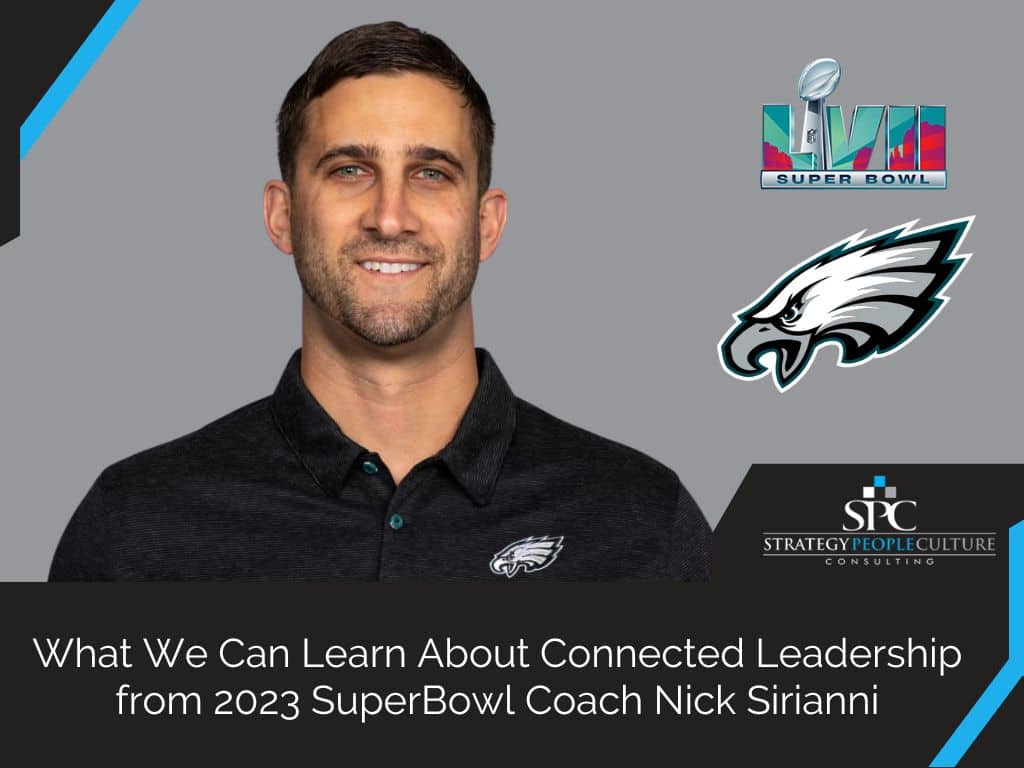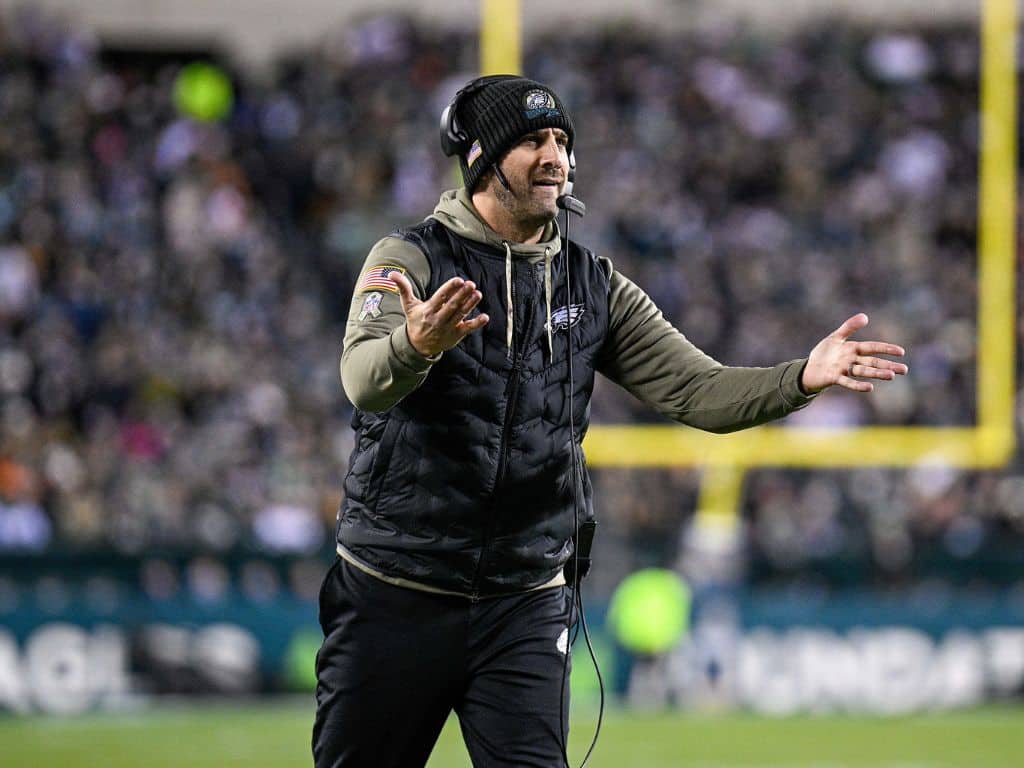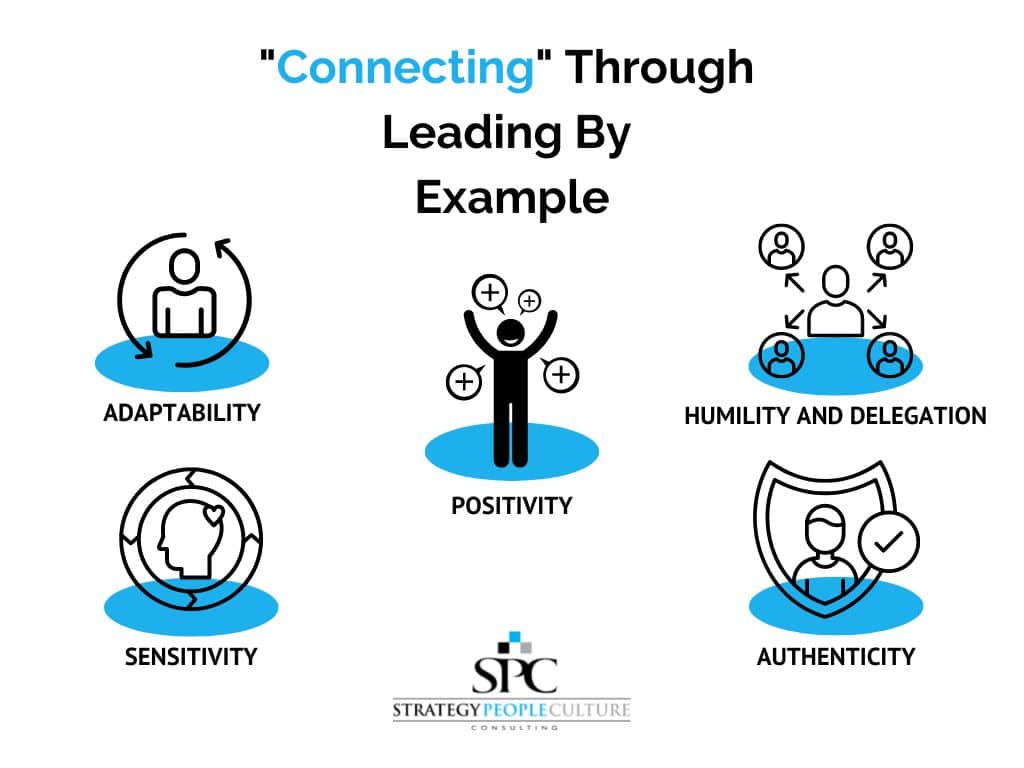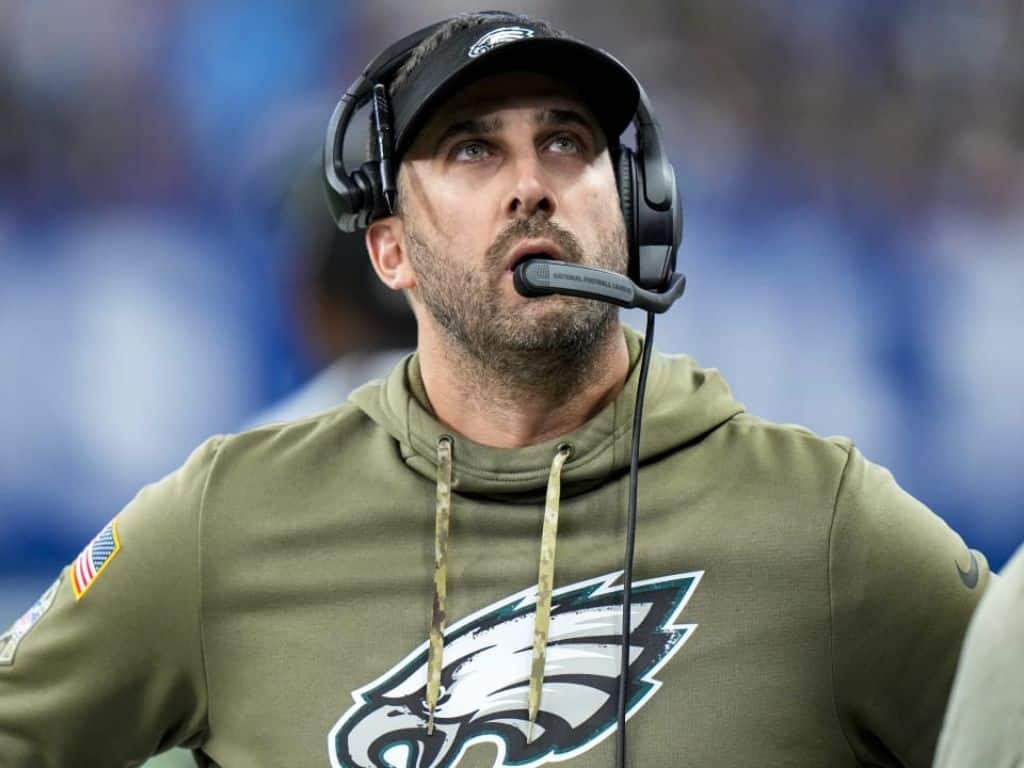What We Can Learn About Connected Leadership from 2023 SuperBowl Coach Nick Sirianni

This Sunday’s Super Bowl LVII will be a showdown between the Kansas City Chiefs and the Philadelphia Eagles. While not the Eagles’ first Super Bowl, it is the first for their head coach Nick Sirianni; he was hired into the role in early 2021.
Before securing his team a spot in this year’s Super Bowl, Sirianni had a rough start to his tenure as coach. In 2021, the Eagles lost their first game against the Dallas Cowboys after Sirianni proudly wore a shirt predicting victory with the slogan “Beat Dallas.” His first press conference following the game was reported by the media to be a disaster, to the point where he was even called a ‘first class meme’ by USA Today.
Despite rocky beginnings, Sirianni has proven his mettle by rebounding the team to make the playoffs in his first year. In his second year coaching for the Eagles, with an impressive regular season record of 14-3, earning first place in the league and a top seed in their conference. Over the course of the year, the Eagles set franchise records for rushing yards and rushing touchdowns. And now, he and his players have made it to the most anticipated game of the year.
As we’ve seen in our previous articles about The Rooney Rule and Dick Vermeil, the leadership of the NFL’s teams is a decisive factor in the success of their policies and performance. The NFL is a business, like any other business, and the leadership at the top is critical to maximizing the success a team can have. What is it that all leaders can learn from this NFL story? How was Nick Sirianni able to command such impressive leadership over his team?
Nick Sirianni’s Unique Leadership Style

NFL coaches have a reputation for using an impersonal, goal-focused leadership style, going so far as yelling at players to toughen up their team. Sirianni is not above yelling, though he leads with authenticity in mind always; he has stated that remaining authentic is one of his most important values. As The Philadelphia Inquirer describes, “Sirianni’s passionate approach is uncommon in a profession that typically lauds stoic leadership and steadiness even in the face of chaos.”
It is commonplace to hear Sirianni talk about “connecting” in news conferences, team speeches, and interviews. Nick Sirianni’s leadership style uses many aspects of emotional intelligence we discussed in our last article. His official biography for the Eagles goes on to explain that he “developed a curriculum for building a winning culture that is grounded in five core values – connect, compete, accountability, football IQ and fundamentals.”
“Connecting” Through Leading By Example
Similar to other great coaches like Dick Vermeil, Sirianni leads by example and brings out the best in his players. As we discussed in our last article, one of the aspects of an emotionally intelligent leader is someone who sets the tone for their team with their own high levels of motivation.
As Eagles center John Kelce (and indisputably future hall of famer) said in an article from USA Today, “Teams tend to embody the energy and what’s being emphasized…I think, obviously, Nick does a tremendous job of coaching every single play, every single day of trying to get better. He’s certainly very, very hungry. So that usually leads to a staff and players that are really, really hungry. I think teams take on the mold of both of those.”
Kelce’s teammate, Darius Slay (and multi-year Pro Bowler), added, “You could tell early on… He came here with the energy and the mindset, and the first thing he ever mentioned was, ‘It’s all about you guys.'”

Here are five key ways Sirianni sets an example that takes his team to victory:
1) Adaptability
Media outlets speculated that, after his losing game and disastrous first press conference as head coach, these ‘fumbles’ would lose him the respect of his players. However, the opposite happened; he admitted he hadn’t made the best decisions and held himself accountable to his team. Ultimately, his positive reaction turned a failure into a valuable opportunity to gain the Eagles players’ lasting respect.
This ability to turn a situation that looks bad into a way to rally a team is important to have as a leader. If his press conference had gone well, it would have just been another good press conference; because it went badly, he had the chance to prove to his team that he’d be a good leader whether or not everything went according to his plan.
2) Sensitivity
The Eagles have not been without their struggles under Sirianni’s leadership. Last season, veteran player Lane Johnson took three games off, later releasing a statement that it was due to his battle with depression and anxiety. Brandon Brooks, a star offensive lineman, suffered physical injuries as well as his own struggles with anxiety.
As the team’s head coach, Sirianni was sensitive to his players and gave them time to heal, whether mentally or physically. This sensitive approach allowed him and his players to address their hardships and make the best decisions for themselves and their team. Fast forward to the upcoming game, Lane Johnson is playing through an injury that most would not, for his team, his fans, and maybe, above all, his leader.
3) Positivity
Sirianni sees his life’s struggles as new opportunities rather than setbacks. For example, when speaking of the injury that ended his football career, he focuses on how being made to leave the field started his career as a coach; he looks back on the event not as a misfortune but as the catalyst that pushed him out of his comfort zone and into his current success. Another example was him being fired by the Kansas City Chiefs (his rival in the Super Bowl) earlier in his career. Such a positive outlook, whether from a coach, manager, or CEO, inspires a team to adopt their leader’s optimistic mindset.
4) Humility and Delegation
In some cases, the best way to play to your team’s strengths is to give them the freedom to play using their own judgment. According to Forbes writer Teddy McDarrah, “Many of the Eagles’ plays rely on the players making the final call on the field.”
“The secret to good coaching,” Sirianni is quoted as saying, “is to get good players, put them in good positions to succeed, and help them get better.” A good coach emphasizes and uplifts the talents of his team. Letting a gifted team call some of their own shots does not mean their coach is “in for a free ride,” as Sirianni’s detractors have said. Instead, it means a coach recognizes the talent he’s working with and will give credit where credit is due. In turn, since they are recognized for their abilities and performance, the team will be motivated to continue to do their best in the future. This is really no different for any business and leader.
5) Authenticity
Sirianni’s example is such a strong influence since it is from the heart. As Sirianni himself explains in a quote from the Inquirer, “If I’m truly trying to build relationships with people and truly living by our core values and connecting, then I can’t be somebody I’m not.” He has even used his commitment to authenticity to overcome his personal weakness for public speaking; no matter how eloquently they are delivered, his speeches are heartfelt and genuine, something his players appreciate.
Sensitive Leadership and Bridging the Generation Gap

Sirianni’s leadership style has been called a “generational shift in what makes an effective NFL coach.” Sirianni has emphasized the importance of uplifting and trust between himself and his players. He is quoted in USA Today as saying, “Our greatest motivation is each other. … The motivation of not letting your teammate down, coach to player, player to coach, player to player, coach to coach… That’s love. That’s the love you have for your teammates, and there is no greater motivation.”
This is a far cry from the screaming, tough football coaches of the past. But Sirianni is responding to a team of younger players; around half are members of Gen Z, the current generation of young adults born between 1997 and 2012.
Unlike previous generations, in general, tough-guy posturing falls flat with Gen Z while openness, honesty, and sensitivity resonate. According to a study in 2019, “Nearly one-third of Generation Z consider themselves the hardest-working generation in the workforce.” The same percentage consider a “supportive manager” as a decisive factor in their motivation to work hard and stay loyal to a company.
While too much sensitivity and lack of a tough exterior are often derided as negative traits of this generation, Siranni has focused on connecting with his players as a foundational comment to achieve above-average performance results. Just look at the Eagles, who have arguably had the best performance of the 2022-2023 NFL season.
Much like the Eagles’ starting roster, the workforce is quickly becoming filled with members of Generation Z. Attentiveness to the leadership style they respond to best is now more important than ever to create and maintain a cohesive and successful team.
Developing Leadership that Values Connection
As Nick Sirianni’s leadership style demonstrates, adaptability and a willingness to learn from less than a perfect performance are vital to success as a leader. Executive coaching is one way for business leaders to understand better where their performance may be getting in the way and take the opportunity to learn new approaches.
If you are a business leader who thinks you may benefit from executive and leadership coaching, please reach out to us. Strategy People Culture has been helping business leaders succeed for over ten years. Call us at (833) ROCK – SPC or (833-762-5772) or email us at info@strategypeopleculture.com for more information.
Image credits to philadelphiaeagles.com
